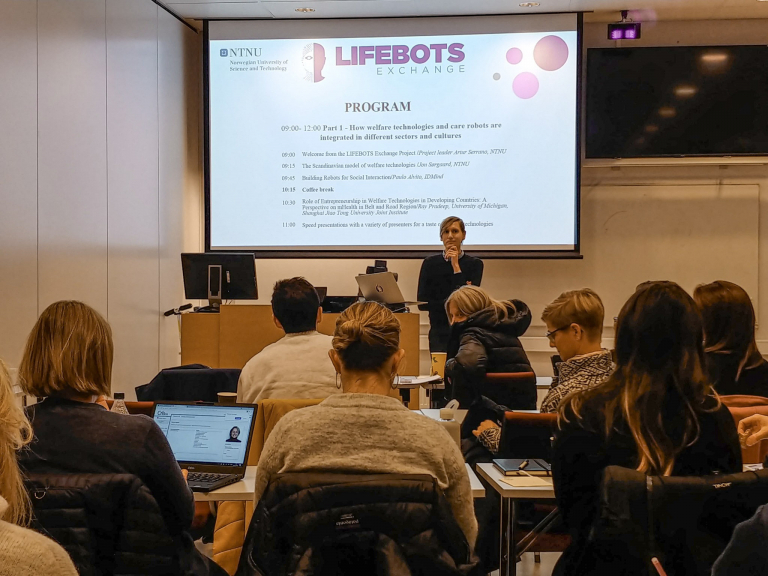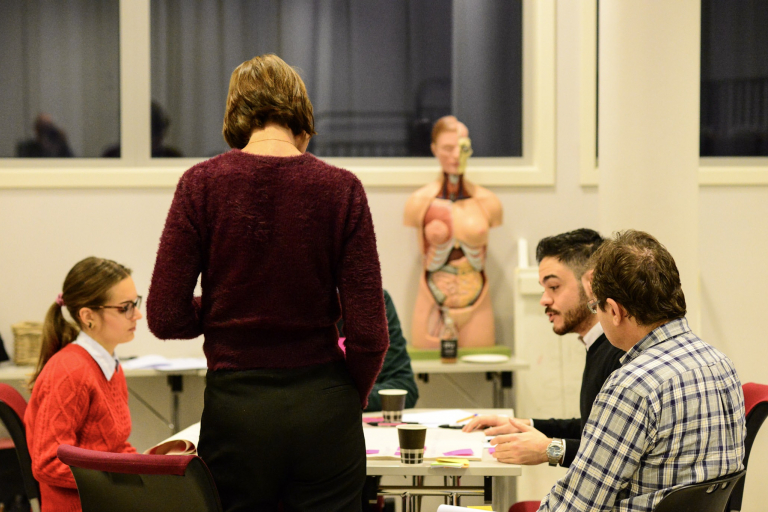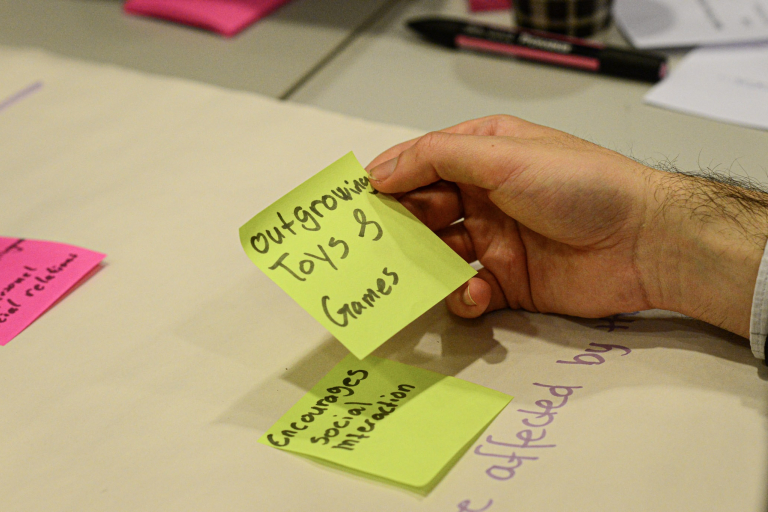Last week the LIFEBOTS Exchange project had its first out of a total of nine workshops that we will see during the lifespan of the project.
This first workshop took place at the Norwegian University of Science and Technology (NTNU), with visitors from the partners IDMind from Portugal and the University Hospital of North Norway (UNN).
The event started with 3 open lectures on the topics of welfare technologies and care robots in different sectors and cultures. After an introduction by project leader Artur Serrano we got an introduction to the Scandinavian model of welfare technologies by Jon Sørgaard (both from NTNU).
Paulo Alvito (IDMind) gave us insight into how the Portuguese industry build robots that can meet the future needs of citizens. He also showed the audience a prototype of an “emotional robot” developed together with the project leader Artur Serrano during one of the work exchanges in LIFEBOTS.
The last lecture was by the keynote speaker from University of Michigan/Shanghai Jiao Tong University Joint Institute, Pradeep Ray. He gave an interesting introduction on the role of entrepreneurship in health technologies in developing countries, with a focus on the Belt and Road initiative.
The workshop continued with speed presentations to display some of the width of welfare technology and social robotics.
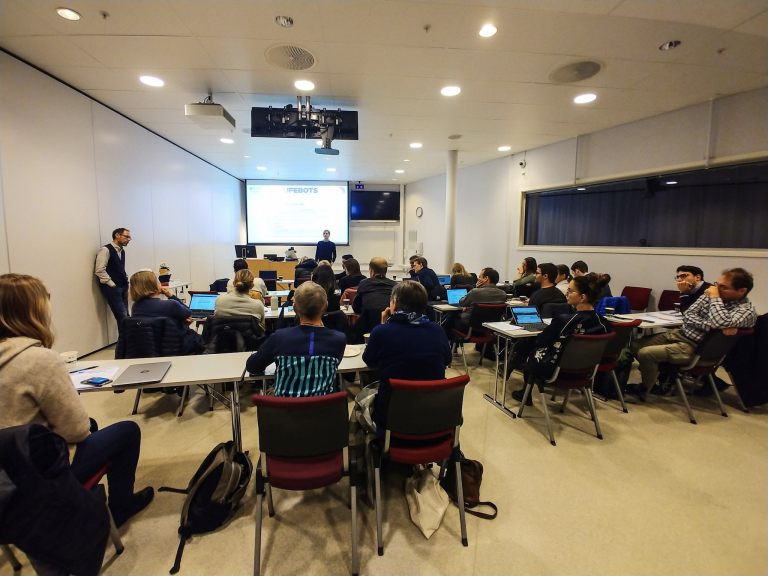
The second part consisted of a “Future Scenario workshop”, where everyone participated in envisioning how different challenges can be solved in the future with the help of technology and social changes. One group discussed the issue of a high technological threshold due to a complex certification process and a lack of ownership to technology development. The solution for this future was to increase the involvement of users and create ownership to the development of the technical solutions and adaptation. This might be one of the steps that leads to increased adaptation of technology.
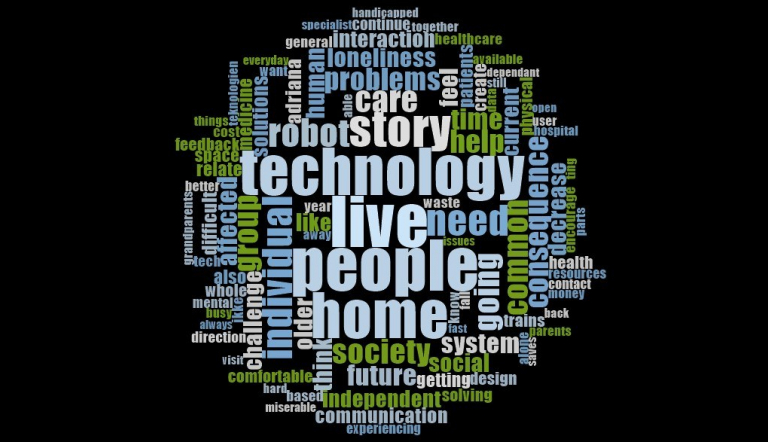
Word cloud from the discussions during the Future Scenario Workshop.
Another group discussed the need for collecting knowledge in the healthcare system to better solve complex health problems. When this group envisioned the future, they foresaw healthcare robots with very broad databases. As useful tool as this might be, an all-knowing robot also comes with risks. Potential loss of identity and biased system were two of the main risks mentioned.
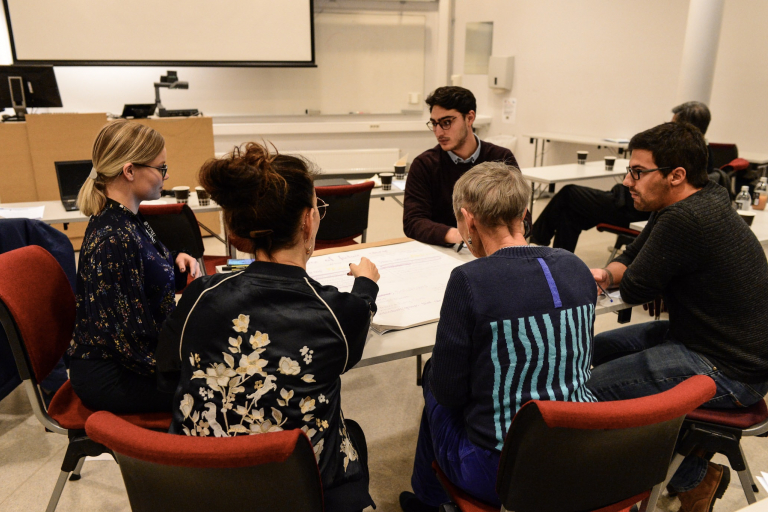
This “Future Scenario workshop” sought to enhance interdisciplinary communication. The groups were sorted with the intention to present people from different countries, sectors and disciplines. The challenges in society varies in different geographical areas, sectors and user groups, and by cooperating in creating a common story the participants were challenged into thinking from another perspective. We hope that the participants enjoyed the process of creating narratives as much as the event organizers at NTNU did – and we look forward to seeing how we together can develop knowledge for a better world.
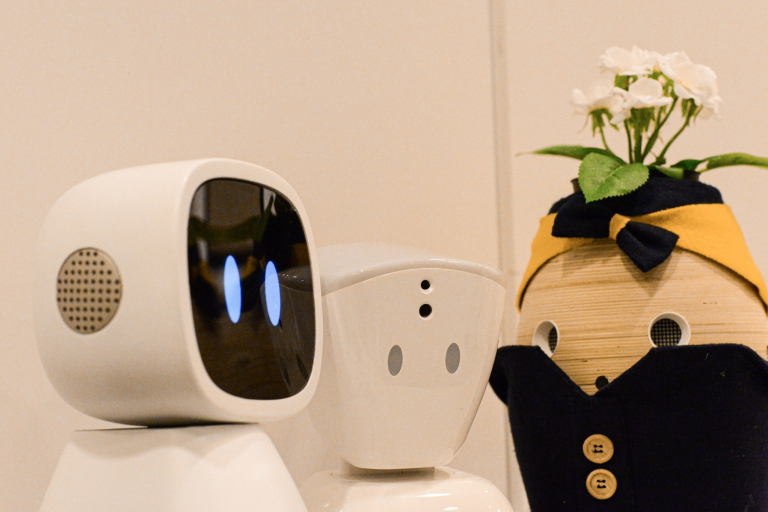
Some of the robots displayed at the workshop.
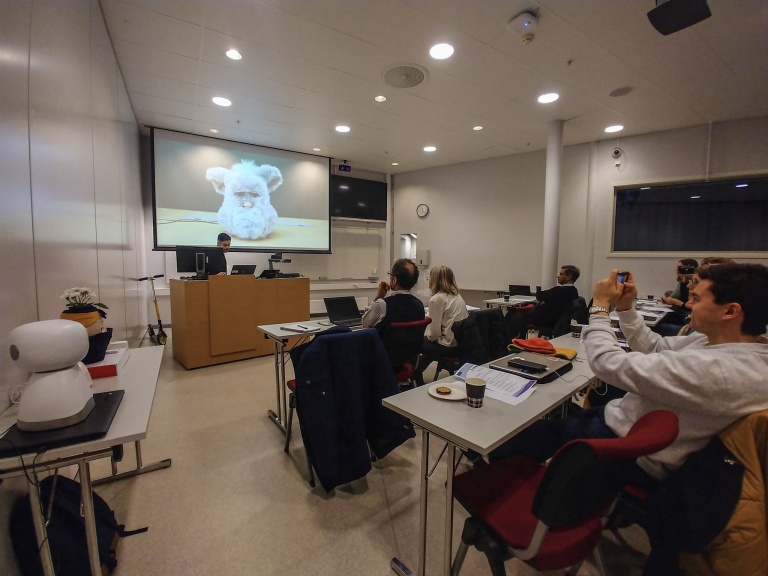
Speed presentation by Pietro Randine from Norwegian Centre for E-Health Research.
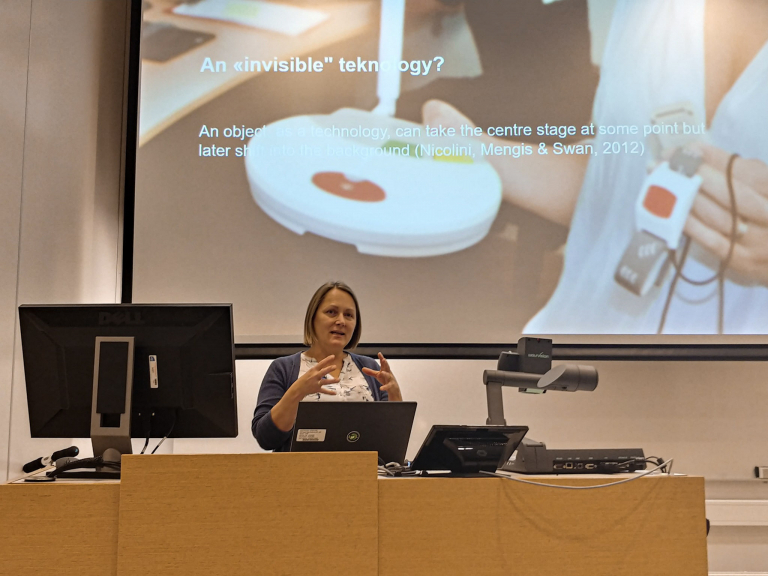
Speed presentation by Randi Stokke from Centre for Care Research at NTNU.
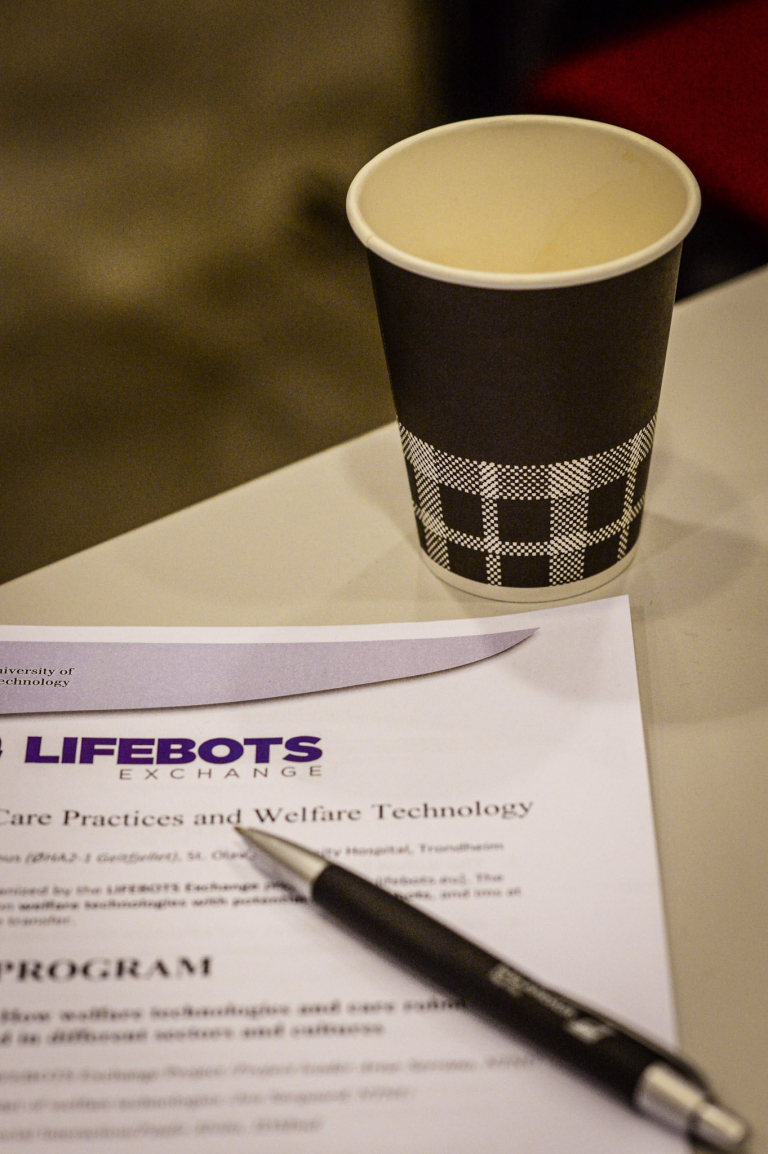

Speed presentation by Erlend Kleiven-Jørgensen, master student at NTNU.
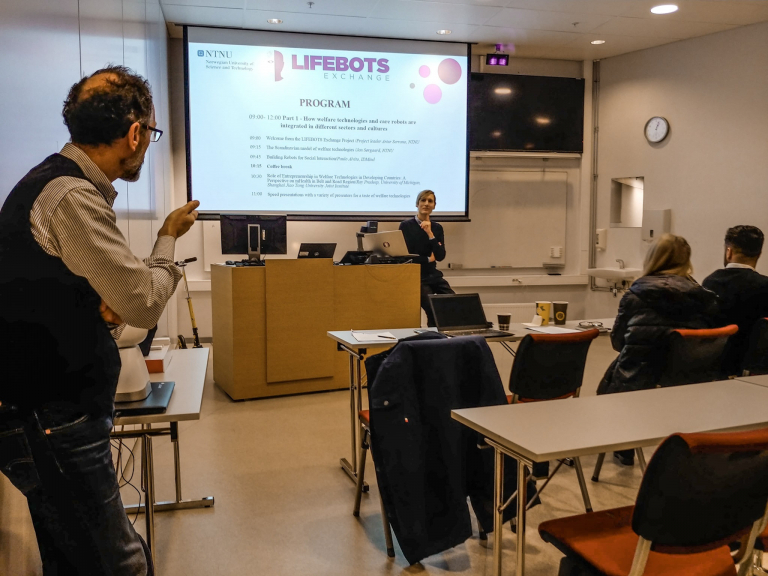
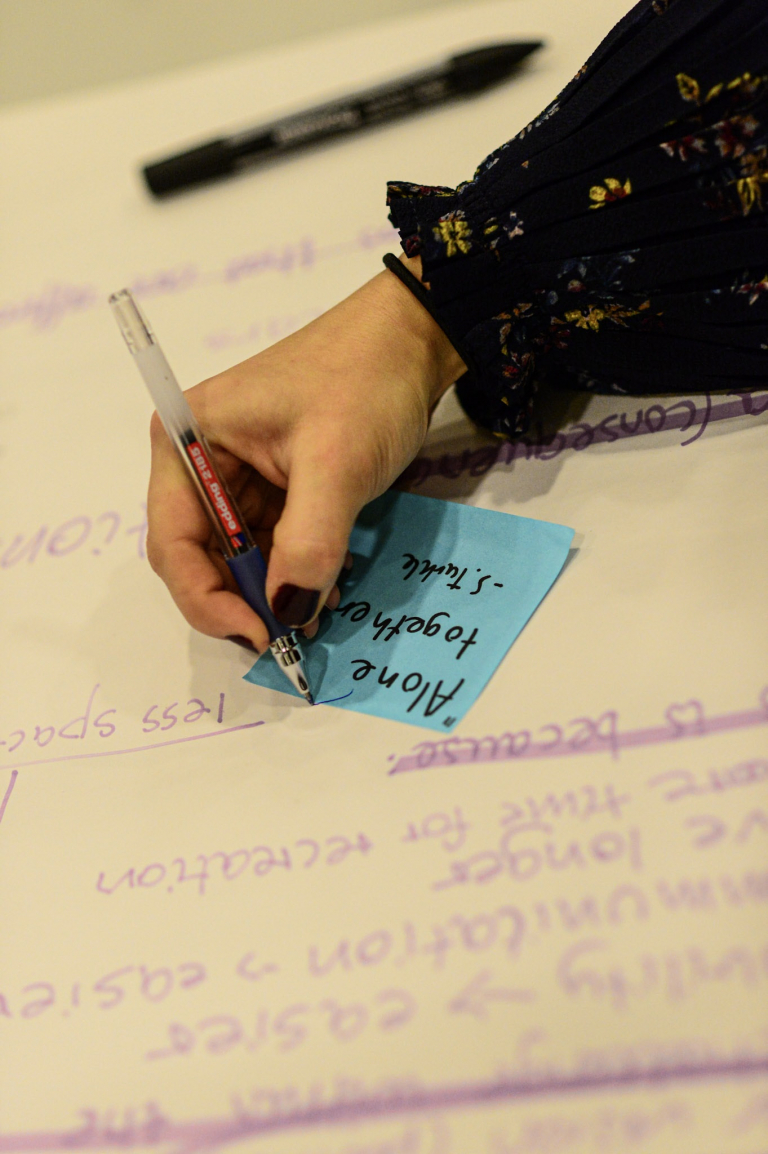
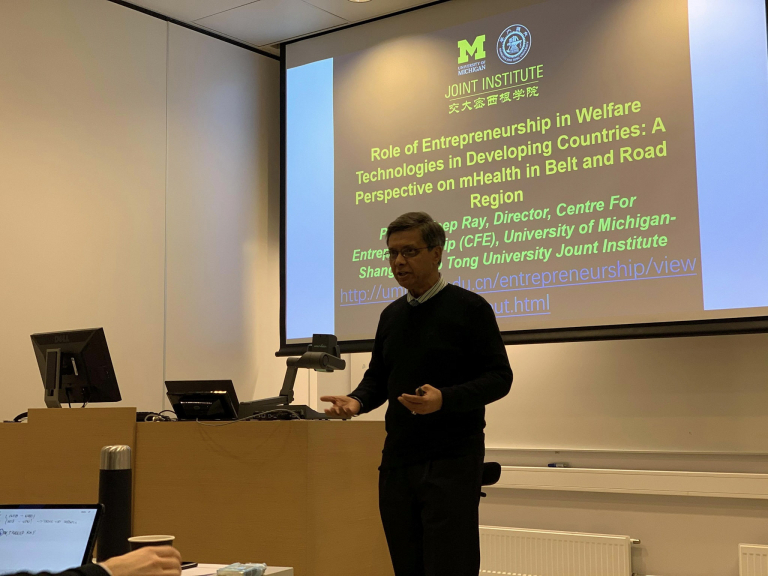
Keynote speaker Pradeep Ray
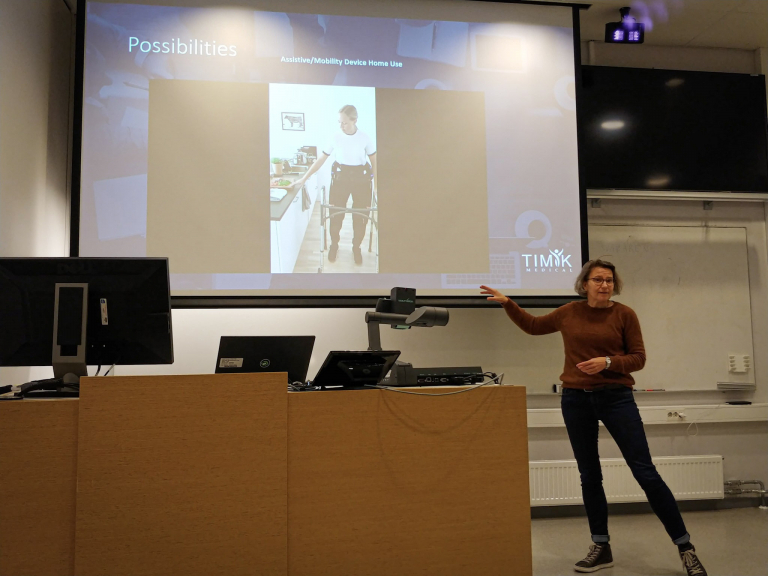
Speed presentation by Marja Haartsen from Timik AS
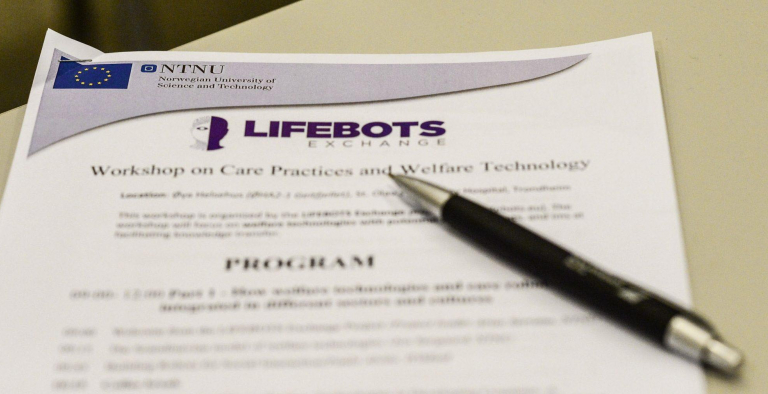
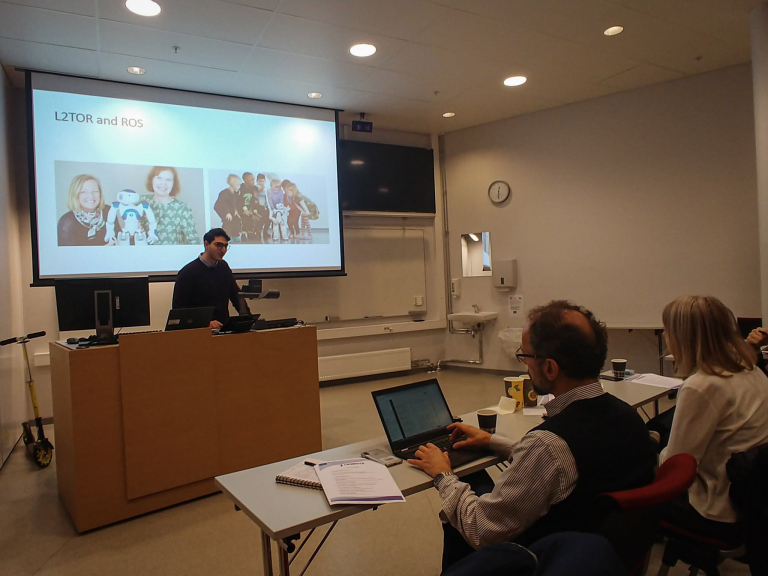
Speed presentation by Vako Varankian from Innocom.
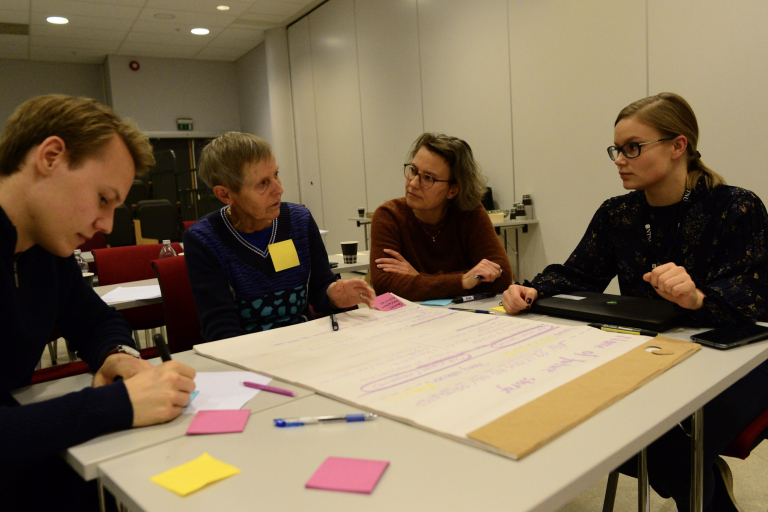
Cooperation and discussion under the "Future Scenario Workshop".
